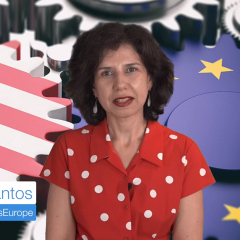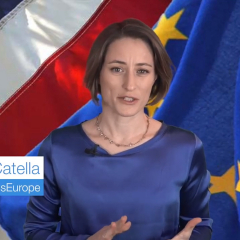EU and USA - How to build a positive agenda
Key messages
- We call on the relevant EU and US policy-makers to establish a formalised platform for high-level strategic dialogue related to trade and economic cooperation that spans across EU institutional cycles as well as changing US administrations. This new platform, unlike previous frameworks for dialogue, should bring in the right political weight, at a level that would reflect the importance of the transatlantic relations.
- The EU and the USA should take a sequential approach to trade negotiations, starting with tariffs on all industrial goods and progressively expanding in case of success to including areas like agriculture, public procurement, services, and investment.
- It is important to deepen and broaden bilateral discussions on conformity assessment procedures, expanding the list of product categories.
- The USA and the EU should enhance their regulatory cooperation in various sectors, tailoring the approach to the specificities of each sector – especially in new and rapidly growing fields like digital technologies, artificial intelligence, cybersecurity, and smart textiles – and should implement a structured dialogue on regulatory cooperation.
- The EU and the USA should formalise a bilateral dialogue on other trade-related issues like services, transatlantic digital flows, FDI screening and infrastructure/connectivity.
- The EU and the USA should take the lead in setting new rules on a variety of topics such as industrial subsidies, state-owned enterprises, forced technology transfers, developing country status, dispute settlement by working constructively on joint proposals to present to other WTO members, focusing on short-term objectives first.
- The EU and the USA should restart the initiative to counter overcapacities.
- The EU and the USA should work together to achieve an ambitious e-commerce agreement. New rules that address current priorities are crucial for the competitiveness of transatlantic business as we advance in the digital transformation of our economies.
- The EU and the USA should strengthen existing multilateral export control regimes and refrain from adopting unilateral export controls that give preference to the development of emerging and sensitive technologies outside the EU and USA thus harming the long-term competitiveness of our economies.
- The EU and the USA must fight protectionist tendencies, by engaging in discussions to remove existing tariffs and non-tariff barriers as well as by refraining from imposing new ones.
- The EU and the USA must reject quantitative management of trade, i.e. purchasing commitments in their trade agreements.
- The EU and the USA should thoroughly take the trade dimension of regulatory measures into account with regard to conception and design, impact assessments and implementation, even if such initiatives primarily deal with policy areas other than trade.
- The EU must defend its own interests and strengthen its defensive regulatory toolbox if needed.
- The transatlantic economy includes non-EU European countries that enjoy a high degree of economic integration with the EU, like the UK, Switzerland, Norway, Iceland and Turkey. Therefore, it is important to look at ways to ensure openness and dock-in options for these countries in the future agreement or set of agreements.


